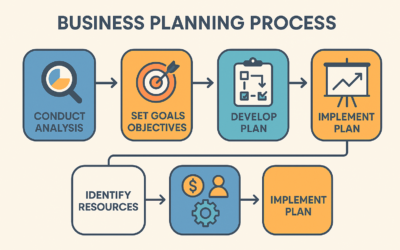Search Engine Optimization (SEO) writing is an expanding field in advertising for small businesses. It is a method of planning and writing about your small business in a way that maximizes how detectable your business is on search engines. SEO is a very cost-effective strategy to set your business up for success from the first edition of your company’s website.
Keywords
Producing a relevant keyword for a given business article is the bedrock of SEO techniques. Entrepreneurs must plan their keywords so that they are relevant to the products/services provided by a given firm. Luckily, there are several free tools to help you determine a term’s search volume and relevance to your business.
Key phrases of at least three words or more are recommended to prevent overlap with an unintended industry. Entrepreneurs should spread this keyword throughout their websites, using headings, links, and general text to boost their search engine standing.
Meta Descriptions
After deciding upon the keywords, you are looking to focus on, an entry’s meta description is one of the most important parts of a given entry on your company website. A meta description is a one to two-sentence introduction to what your viewer is about to read. You are pitching the content to your potential customers before they read into the body of your post.
Content
Some firms might get too distracted by the technical aspects of SEO, forgetting that the goal is to generate engaging, educational content. All the search optimization tricks are useless unless entrepreneurs or their employees produce content that is useful to a given reader or clearly explains a given product or service that the company can provide.
Modern market research has also proven a traffic increase keeps a regularly updated blog as opposed to creating and leaving a traditional company website to sit stale. Constantly adding entries into your website means that you can keep adding to your compilation of keywords and links, all increasing your turnout on popular search engines.
Consumer research shows that people are far more likely to investigate a website if it appears on the first page of Google. Most people do not search beyond the first results page purely because of expediency. This makes it paramount to get your small business website as high on the search index as possible.
Technical Performance
As you add content to your business’s website, you may notice that pages take longer to load. While this may not seem like an issue at first, it can damage your online presence in surprising ways. Some website architects point to research claiming that a consumer will leave a website where pages take longer than 4 seconds to load. Business owners are competing with potentially thousands of other competitors that are just another click of the mouse away for customers. This makes it especially important in designing a website that is user-friendly and technically responsive.
Fortunately, load times are not hard to manage. They merely require diligence when designing a small business’s website. Site architects should have a robust link-building strategy, but they should not require many site redirects. Images should be kept in compressed file sizes if this does not interfere with the image quality. These are just small tasks that can increase readability and keep clicks coming to your company’s website.
Search engine optimization for a small business can sound like an intimidating task at the start, but most entrepreneurs will find that the concepts are quite intuitive. Armed with some technical knowledge and an eye for what is an extension of the customer service and advertising sectors, a small but determined firm can create a visually pleasing online platform to help attract a consumer base.
Luckily, there are some great options for SEO optimization advice. GR-US.com is an excellent resource for every small business owner in topics ranging from financing, human resources, to marketing!

0 Comments